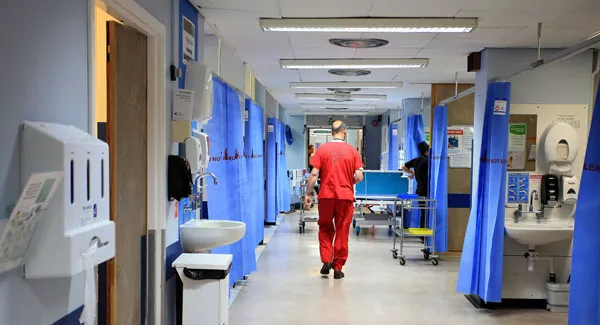The HSE has revealed that there has been a "noted increase" in meningococcal disease in the country in the last two weeks.
They said that 11 cases have been notified to the Health Protection Surveillance Centre (HPSC) since the last week of December and three patients have died from the infection.
It compares to five cases for the same time period, December 24 to January 7, last year.
Altogether in 2018, a total of 89 meningococcal cases were notified compared to 76 in 2017.
Provisional data from the recent strain of the disease shows that all age groups have been affected, ranging from infants to elderly. Of the three patients who died, two different strain types were identified.
- Signs and symptoms may include:
- Fever (sometimes with cold hands and feet)
- Joint or muscle pain
- Rapid breathing
- Severe Headaches
- Drowsiness
- Discomfort from bright light
- Neck stiffness
- Vomiting, stomach cramps and diarrhoea
- Non-blanching rash may appear which may be tiny red pin pricks that may develop to purple bruises. This rash does not fade under pressure.
Dr Suzanne Cotter, Specialist in Public Health Medicine at the HSE's Health Protection Surveillance Centre, said: “Although meningococcal disease incidence generally increases in the winter months, the recent increase is cause for concern and the HSE wishes to alert the public to the signs and symptoms of this disease so that immediate medical attention can be sought if someone has symptoms that could be caused by this bug.
“If anyone has any concerns about meningitis they should ring their GP in the first instance. Meningitis and septicaemia often happen together and symptoms can appear in any order.
"Some may not appear at all. Early symptoms can include; fever, headache, vomiting, diarrhoea, muscle pain, stomach cramps, fever with cold hands and feet and a rash, but do not wait for the rash to appear. If someone is ill and getting worse, get medical help immediately.
“Parents of children should also check that they are up-to-date regarding their childhood meningococcal vaccinations.”
The HSE said that none of the patients who recently contracted meningococcal disease had contact or links with each other.
They said: "Spread of meningococcal from person to person is very unusual, especially outside of close household contact."
The HSE advises that parents of children should ensure that they have received all their vaccines on time. A vaccine that protects against meningococcal C disease (MenC vaccine) is given at six months and at 13 months and meningococcal B vaccine (MenB vaccine) is given at 2, 4, and 12 months of age.

Also, adolescents are routinely offered the MenC vaccine in the first year of secondary school. Older teenagers and young adults up to the age of 23 years who never received a MenC vaccine are recommended by the HSE to get the vaccine.
Other vaccines that protect against other forms of meningitis and septicaemia are included in the routine child vaccination programme (Hib vaccine and pneumococcal vaccine (PCV)). Children who have missed vaccines can get these vaccines from their GPs.






